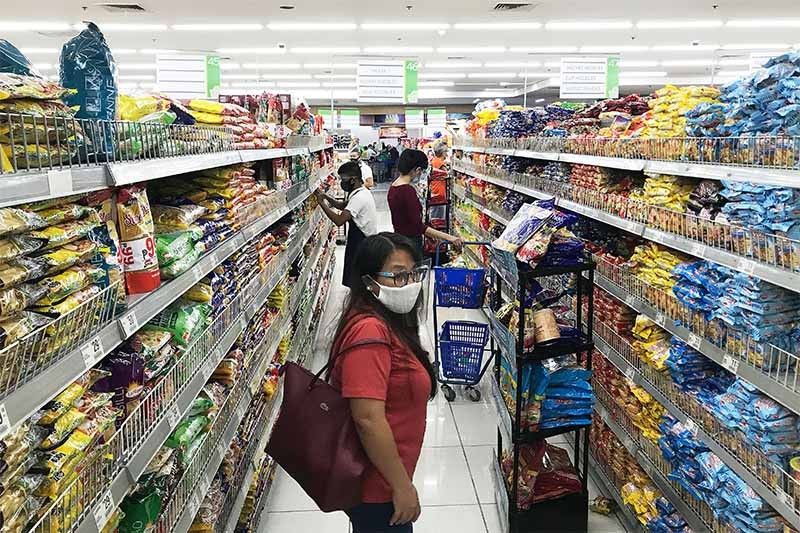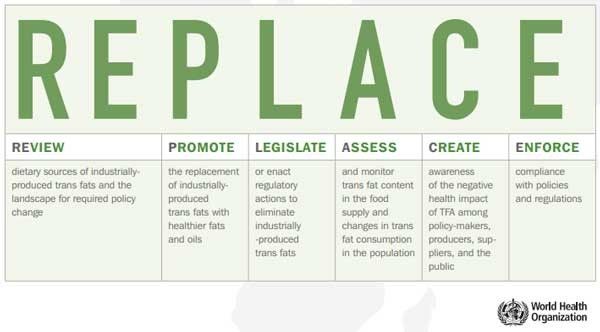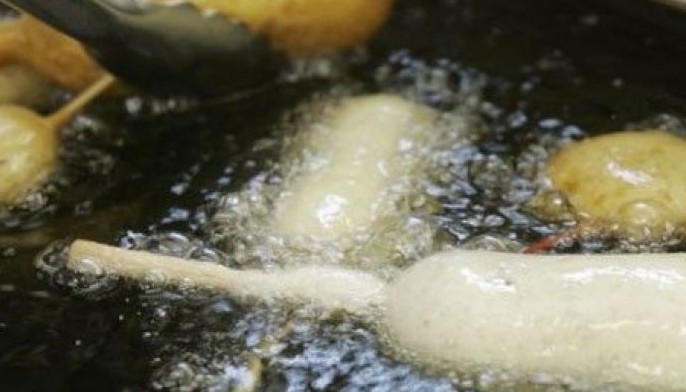High trans fat intake can make you more susceptible to COVID-19

MANILA, Philippines — There is something in food that could make people more susceptible to the coronavirus and you've probably consumed it in excessive amounts during the lockdown.
Consumption of large amounts of trans fat causes noncommunicable diseases, which can make people "more susceptible to the coronavirus," according to leadership of the World Health Organization (WHO).
Noncommunicable diseases, particularly cardiovascular diseases, are common comorbidities. In the Philippines, at least 49% of COVID-19 deaths had comorbidities.
The percentage was cited in House Bills 7200 and 7202 that seek to prohibit the manufacture and sale of foods with high trans fat content.
Trans fatty acids (TFA), or trans fat, is naturally occurring in small quantities in meat and dairy products. There are also industrially-produced trans fats in many food items that, when consumed in large amounts, can increase the risk of cardiovascular diseases. This is done by partial hydrogenation of vegetable and fish oils.
Hydrogenation is a chemical process that manipulates the molecules in oil; the process results in hardened oil. Partially hydrogenated oils (PHO) prolong the shelf life of foods and are a cheaper replacement for animal fats, according to the WHO.
IN NUMBERS: Alarming heart health statistics you need to know
Fast food and food packs
The eating habits of Filipinos and even their response to calamities are a reflection of the lack of stringent regulation of trans fat intake in the Philippines.
During the Luzon-wide lockdown, the government and other donors distributed food packs which included canned meat, crackers, and 3-in-1 coffee.
GrabFood's website also shows that consumers in the Philippines "frequently searched" for fast food chains. The company reported that food delivery tripled in just the first two weeks of lockdown.
While not all processed foods have trans fat and not all food deliveries are from fast food chains, "the foods notoriously known (for having trans fats) are cookies, donuts, cakes, chips, crackers, French fries and other fried fast food, and frozen pizza," said Dr. Alyssa Bautista, assistant professor of neurology at Columbia University in New York and an expert in strokes.
The WHO recommends that trans fat intake be limited to less than 2.2 grams per day in a 2,000-calorie diet.
Packaged meat, cookies, pastries, and cakes "might exceed 3-5 grams per serving," said Dr. Ranulfo Javelosa, division chief of Preventive Cardiology Department of the Philippine Heart Center.
Even non-dairy creamer — an additive in 3-in-1 coffee and used by some milk tea shops as a cheaper alternative to fresh milk — reportedly contains trans fat.
This was mentioned during the launch in September of the WHO's progress report on the adoption of the REPLACE Technical Action Package.

The package provides strategic approaches to eliminate industrially produced trans fat by 2023. Among the recommendations are to enact legislations that will eliminate industrially produced TFA, review dietary sources of TFA, and replace PHOs with healthier oils.
Javelosa and Bautista cautioned that consumption of foods with TFA increases the risk of stroke, heart attacks, and coronary artery disease because TFA increases the low-density lipoprotein (LDL), or bad cholesterol, in the blood.
"LDL causes buildup of fatty deposits along the walls of arteries, a process called atherosclerosis—that later reduces or blocks blood flow to brain, or heart, tissue and causes a stroke," Bautista explained.
Nutrition labels
However, avoiding foods with trans fats may not always be that easy—there are foods that contain trans fats but still labeled as “zero trans fat”.
It’s because local manufacturers have "traditionally applied" the US Food and Drug Administration’s policy on nutrition labeling that allows foods with less than 0.5 grams trans fats per serving, to be labeled as "0 grams trans fat," said lawyer Mary Grace Anne Rosales of ImagineLaw, a non-profit organization working with the Department of Health and other partners on trans fat regulation.
The lack of measurea that will require food manufacturers to accurately disclose the ingredients and nutrition content is one of the things that HB 7200 and 7202 seek to address.
"HB 7200 and 7202 seek to prohibit trans-fat-free claims on product packaging and other marketing strategies…to avoid the so-called ‘halo effect’ or misleading consumers that food products that claim to be trans fat-free are healthy without taking into account that it may contain less than 0.5 grams per serving and may be high in other nutrients such as salt or sugar," Rosales added.
Javelosa said the government must require packaging to be clear on a product's contents. It must als report violations and regulate sales in groceries, fast-food stores, schools, and offices.
As of September, the South-East Asia Region has a "relatively slow but growing interest in regulating TFA," the WHO said in its progress report on the REPLACE Technical Action Package.
Only Thailand has adopted WHO's best-practice policy, becoming the third country in the world to ban PHOs after Canada and United States. India opted for less restrictive trans fat limits while Bangladesh, Bhutan, Indonesia, Maldives, Myanmar, Nepal, Sri Lanka, and Timor-Leste have committed to eliminate TFA.
"The Western Pacific Region has seen relatively little action," the WHO said. Singapore is the only country in the region that limits TFA. Brunei Darusasalam, China, Republic of Korea, and the Philippines have so far only proposed measures to regulate TFA.
Since Congress has yet to pass a measure to eliminate trans fats in the country, the best way for Filipinos to identify foods with trans fat is to check on nutrition label, specifically, the list of ingredients,” said nutrition professor Kathleen Cruzada of the University of Santo Tomas
"You have to look for trans-fat-containing ingredients, such as margarine, non-dairy creamer, and [partially] hydrogenated oils and fats," she added.
Food aid
A nationwide ban on trans fats can also be crucial to the health of the population in times of calamity. Shelf life and time constraint are considerations during calamities and that sometimes means donations of foods high in trans fats. But health experts interviewed for this report said it is still possible to distribute fresh and whole foods during trying times.
Cruzada noted that some local government units distributed vegetables during the lockdown.
"There were media reports about oversupply of vegetables in markets and direct farmer suppliers, which resulted in lower vegetable cost. Those fresh vegetables, particularly root crops, tubers, and other starchy vegetables, could have been distributed instead. Those types of vegetables have longer shelf life," she said.
"Therefore, there will be less issues when it comes to storage and spoilage if that will be the government's concerns."
For Bautista, other options are canned or frozen vegetables and fruits. "Most canned fish like tuna and sardines do not have trans fat, and can be a good source of Omega-3 fatty acids."
Eating habits are also related to mental health. According to Dr. Rommel Sergio, a psychologist and professor at the Abu Dhabi School of Management, “over-eating and consuming unhealthy foods with harmful trans fats is one of the effects of lockdown that redounds to poor mental health” because “eating is a coping mechanism and ordering from fast-food to fill in boredom since lockdown supports this mechanism.”
For Cruzada, the eating habit of Filipinos is a reflection of the need to strengthen education when it comes to nutrition. She reminded that because there is no COVID-19 vaccine yet, only a “strong immune system is the best defense to COVID-19” and this is achieved by having proper diet and active lifestyle.
“If people are aware of the consequences of a healthy lifestyle that includes diet and exercise, they will value their food choices,” she added.
This story was produced under the ‘(Un)Covering Trans Fats Media Training and Fellowship Program’ by Probe Media Foundation Inc. and ImagineLaw. The views and opinions expressed in this piece are not necessarily those of PMFI and IL.
- Latest































